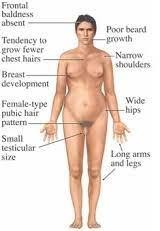Which complication is suspected in a client whose blood sugar is less than 30 mg/dL?
Seizure
Anorexia
Anhidrosis
Bradycardia
The Correct Answer is A
Choice A rationale: Hypoglycemia (blood sugar less than 30 mg/dL) can lead to seizures due to inadequate glucose supply to the brain.
Choice B rationale: Anorexia (loss of appetite) is not directly associated with low blood sugar but can be a symptom of other conditions.
Choice C rationale: Anhidrosis refers to the inability to sweat and is not typically associated with low blood sugar.
Choice D rationale: Bradycardia (slow heart rate) can be a symptom of severe hypoglycemia but is not the primary complication expected at this blood sugar level.
Nursing Test Bank
Naxlex Comprehensive Predictor Exams
Related Questions
Correct Answer is C
Explanation
Choice A rationale: These symptoms are more indicative of diabetic ketoacidosis, not hypoglycemia.
Choice B rationale: Symptoms of increased urination, thirst, and hunger are more associated with hyperglycemia, not hypoglycemia.
Choice C rationale: These are classic signs of hypoglycemia and should be described to the client for early recognition and intervention.
Choice D rationale: These symptoms can occur in hypoglycemia but are less specific compared to sweating, cold, trembling, and tachycardia.
Correct Answer is A
Explanation
Choice A rationale: Cri du chat syndrome involves a high-pitched cry in infants and other distinct physical and developmental features, but it doesn't present with the described symptoms.
Choice B rationale: Klinefelter syndrome, characterized by an extra X chromosome (XXY) in males, typically presents with small testicles, gynecomastia (enlarged breast tissues), sexual dysfunction, and altered body proportions, such as long legs and a shorter trunk, aligning with the client's symptoms.
Choice C rationale: Patau syndrome (Trisomy 13) manifests with severe developmental issues, facial abnormalities, and other physical malformations, but the described symptoms are not typically associated with this syndrome.
Choice D rationale: Turner syndrome involves females with a missing or partially missing X chromosome (45, X), resulting in specific physical features and medical problems not consistent with the described symptoms in a male client.

Whether you are a student looking to ace your exams or a practicing nurse seeking to enhance your expertise , our nursing education contents will empower you with the confidence and competence to make a difference in the lives of patients and become a respected leader in the healthcare field.
Visit Naxlex, invest in your future and unlock endless possibilities with our unparalleled nursing education contents today
Report Wrong Answer on the Current Question
Do you disagree with the answer? If yes, what is your expected answer? Explain.
Kindly be descriptive with the issue you are facing.
